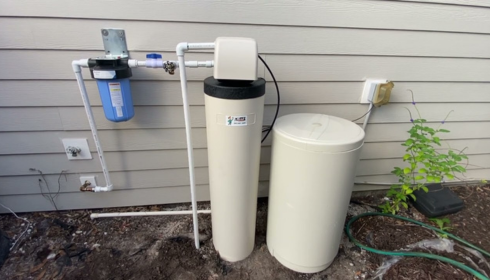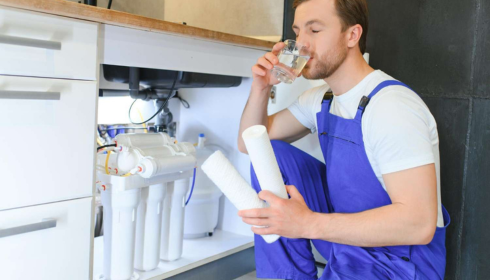It’s easy to overlook water quality until you start noticing little annoyances — spots on your glasses, soap that doesn’t lather quite right, or that faint metallic tang when you take a sip straight from the tap. Most people chalk it up to “just the way the water is.” But the truth is, the water running through your pipes shapes everything from how fresh your laundry smells to how efficiently your appliances run. That’s where modern water refiners step in, giving households a way to tackle these problems at the root.
Understanding What Makes a Water Refiner Different
A lot of folks confuse refiners with traditional softeners, and while they share similarities, refiners go a step further. Instead of just tackling hardness minerals like calcium and magnesium, they’re designed to target a broader spectrum of impurities. Think of it as a multitool instead of a single screwdriver — more versatile, more comprehensive, and ultimately more effective for the average home.
If you’ve ever heard of the IT Series water refiner, you’ll know what I mean. This system doesn’t just soften; it actually conditions and filters, producing water that feels smoother on your skin, tastes cleaner, and helps reduce wear on your appliances. It’s one of those behind-the-scenes household upgrades that quietly makes everyday life better.
Why Water Quality Isn’t Just a Comfort Issue
Here’s something many people don’t realize: water quality affects your budget more than you’d expect. Hard water deposits shorten the lifespan of dishwashers and washing machines. Soap and detergent waste increases when the water isn’t treated properly. Even your energy bill can creep higher, since scale buildup forces water heaters to work overtime. So while it’s tempting to treat a water refiner like a “luxury,” in reality, it’s a cost-saving measure in disguise.
But it’s not only about money. There’s peace of mind, too. Fewer harsh minerals and fewer contaminants mean you’re bathing, cooking, and cleaning with water that supports your well-being instead of undermining it. That’s a subtle but powerful shift.
The Importance of Professional Installation
A lot of DIY enthusiasts like to think they can tackle everything with a set of wrenches and a YouTube tutorial. And hey, I get it — the satisfaction of doing something yourself is unmatched. But with water systems, a proper setup isn’t just about connecting pipes. It’s about calibration, pressure settings, and ensuring compatibility with your home’s existing infrastructure. Skimping here can undo the very benefits you’re aiming for.
That’s why professional water refiner system installation makes all the difference. You’re not just paying for someone to screw things together; you’re investing in experience, precision, and warranty protection. A misaligned valve or poorly set regeneration cycle can turn a great machine into a headache. Done right, though, the system practically disappears into your routine — reliable, quiet, and effective.
Living With Better Water, Day by Day
Here’s where the story gets personal. Families who make the switch often don’t realize the impact until weeks later. Suddenly, showers feel more refreshing, hair feels smoother, and dishes come out of the dishwasher without that cloudy film. Laundry smells fresher and looks brighter. Even little things, like filling a water bottle before heading out the door, feel like small luxuries instead of compromises.
That’s the beauty of a refiner — its benefits layer into everyday life in ways you don’t notice until you look back and think, “Wow, why didn’t I do this sooner?”
Water Conditioners vs. Refiners: Finding the Fit
Not every home needs the exact same solution. While refiners are an excellent all-in-one choice, some households lean toward conditioners, which focus on tackling specific challenges like chlorine or sediment. Both have their place, and the best choice depends on your water supply, your plumbing, and what problems bug you the most.
When handled by experts, a water conditioner installation ensures your system is tuned to address your home’s unique water profile. Maybe your region deals with high chlorine levels, or maybe your well water carries more sediment than you’d like. Conditioners step in to solve those precise issues, giving you flexibility without overcomplicating things.
How to Decide if It’s Time for a Refiner
So, when’s the right time to take the leap? Start with your own observations. Do you notice scaling on faucets or showerheads? Do you have to scrub too hard to get soap scum off bathroom tiles? Have your appliances needed repair or replacement sooner than expected? Even if the answers aren’t dramatic, small annoyances add up — and they often point to underlying water quality problems.
Next, consider a professional water test. These tests are relatively inexpensive (sometimes free through local companies) and can tell you exactly what’s flowing through your pipes. Once you know the makeup of your water, it’s far easier to match it with the right system.
Looking Ahead: An Investment That Pays Back
There’s a reason homeowners who invest in refiners rarely look back. The return isn’t just in cleaner dishes or softer clothes — it’s in reduced repair costs, lower energy usage, and a general sense that your home is working with you instead of against you. It’s the kind of invisible upgrade that builds value every day you live in the house.
Think of it like putting better tires on your car. Sure, you could roll along with worn-out ones, but why settle when a simple upgrade makes every drive smoother, safer, and more enjoyable?
Final Thoughts
At the end of the day, water is too central to life at home to leave to chance. Whether you choose a refiner, a conditioner, or some combination of both, the key is recognizing the impact quality water has on your daily comfort and long-term savings. It’s not about fancy tech or flashy features — it’s about investing in a resource you use more than almost anything else.
So the next time you catch yourself grumbling at cloudy glasses or stiff laundry, maybe take it as a sign. Better water is possible, and once you’ve experienced it, you’ll wonder how you ever settled for less.





